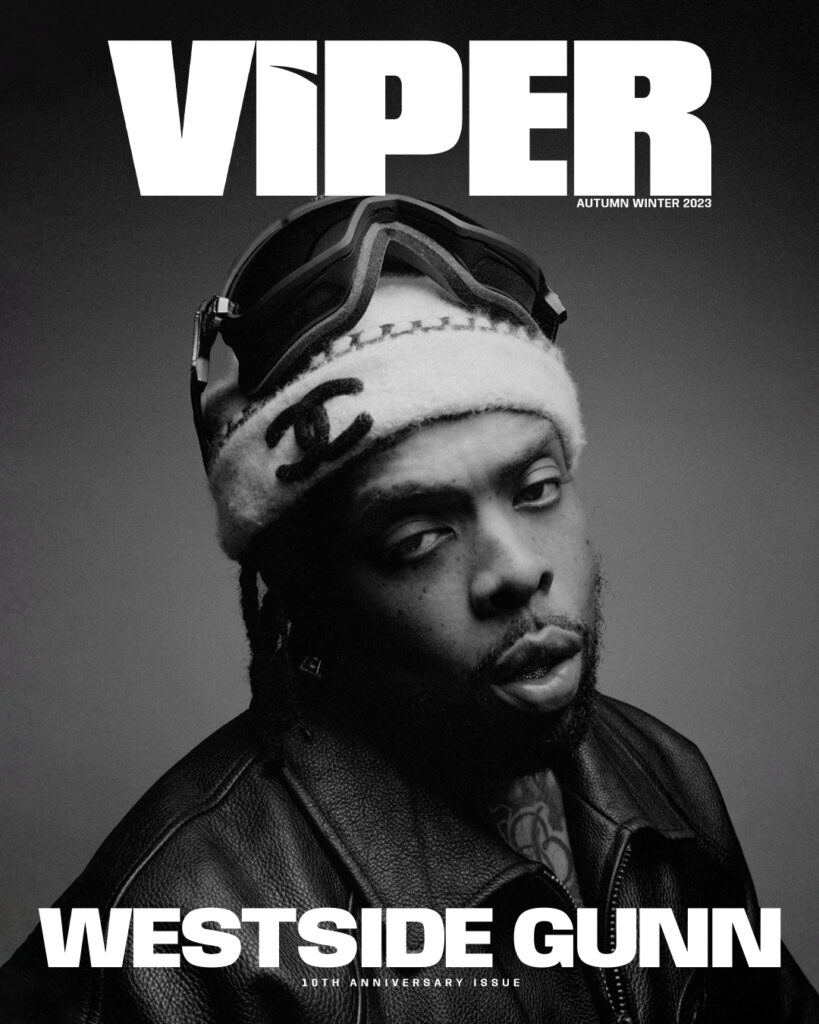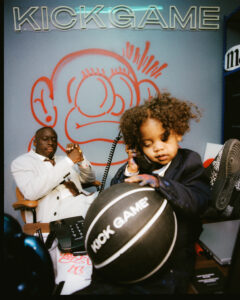You don’t need Marvel or DC to be a superhero fan, hip hop has been tied to comic books since day uno. Faster than a foe’s bullet, smarter than a crooked cop with the ability to leap over haters and scoop your girl, MCs boast special powers minus the cape. Hit play, pause in disbelief and you’ll witness enough uncanny sagas to mystify Stan Lee. On primeval hit ‘Rappers Delight’, former pizza boy Big Bank Hank launched comparisons by stunting on Clark Kent. “By the way baby, what’s your name? Said I go by the name of Lois Lane. And you could be my boyfriend, you surely can, just let me quit my boyfriend called Superman.”
Almost four decades later, we’ve remained covert fan-boys. Heroics and villainy surge through rap’s multiplex of wild deeds, messianic ambitions and cinematic showdowns. Among those unconsciously mimicking printed protagonists is Atlanta’s hit-making overlord Future. Whether poised as a double cupped Yahweh or 808 incubus, the masked avenger narrative remains. Like 70 years of nerd lore before him, Future’s story and perception reflects humanity’s triumphs, struggles and terrors. MCs outstep the ordinary to snatch respect, adoration and wealth. Their names trigger a variance of mystique and believability. Akin with David Banner morphing into the Hulk, almost every hot spitta has an alias to channel their power. Quincy Matthew Hanley sounds less like a library warden under his crippy hippy pseudonym; ScHoolboy Q. Radric and Torrence aren’t names to fear, but Gucci Mane and Boosie Badazz have handled more artillery than Tunisia.
Play rapper word association and specific attributes leap to consciousness. Lil Wayne – facial tattoos and drank, Cypress Hill –Latino pride and weed, Young Thug – weirdo genius. Some artists went full nerd when choosing their titles; DJ Clark Kent, DJ Green Lantern, Grandmaster Flash, Jean Grae and Big Pun all borrowed namesakes from panelled characters. One slick nom de plume isn’t enough though. Alter egos are as common as regrettable tattoos, platinum teeth and video vixens. Wu Tang Clan are the best example – each verbal assassin has a hero equivalent, most notably Ghostface Killah conjuring Tony Stark on wordplay master class Ironman. They’ve made comic books, video games and movies. RZA bought an impenetrable truck and $20,000 suit with bulletproof briefcase to realise his Bobby Digital ego. Yes, you read that right.
Forget flying, walking through walls or invisibility though; there’s no better talent than harnessing the future. You can’t defeat someone who knows your every move before you do. Humanity is obsessed with predicting its outcome, but it’s perpetually one step ahead. For every crystal ball hack, there are a million suckers leaking £1.99 per minute. Become the future and you’ve entered the realms of omnipotence… or at the very least, toll call mastery.
Perhaps Nayvadius Cash knew this when he chose the prophetic moniker. While some artists are strictly #noncanon, there’s magic to our Promethazine fuelled hero and his Freebandz contingent. Dungeon Family honcho Rico Wade says Cash divined the name “Future” from a song. Others claim it was because he knew he was going to be “the future of rap.” But none of that really matters. What’s certain is the life of Pluto’s coolest inhabitant mimics any well-thumbed classic.
Cash’s history encompasses pathos, tragedy and prosperity in the ideal heroic formula. Like Peter Parker superseding bullying to become Spiderman, Future’s origin is as important as the music itself. We’ve been using back-stories to appeal to human psychology and explain universal mysteries since humans began crawling from swamps. Why does a snake have no legs? Why is the sky blue? Why does Wiz Khalifa giggle at the start of each verse? Humans also relish a tale of struggle. From the social pariahs who united as X-Men to former weakling Captain America, these are the tales that resonate. A gripping character needs a background myth involving danger and adversity. We’re drawn to those who use their abilities to transcend their environment. We like to witness the anguish, so we can join the celebration. If you escaped what Jigga escaped, you’d be in Paris getting fucked up too. Everyone knows the survival anecdotes – 50 Cent caught nine bullets, Boosie dodged cancer, Fetty Wap lost an eye, Kanye produced a whole Tyga album. Like crusaders of the caped and microphone-wielding ilk, Future’s path from underdog to absolute also begins with hardship.
The Adderall android was raised in ATL’s own pre-gentrification Gotham; Kirkwood. Violence is a perennial chapter in the Eastern suburb’s annuals. In 1864, the Atlanta brigades began a conflict that triggered countless civilian and military deaths. Almost 40% of the city was eventually levelled when the Union destroyed a munitions train, damaging anything within a quarter mile. The civil skirmish is still marked by a sign on Memorial Drive proclaiming “Battle of Atlanta began here.” Cash’s childhood was also marred by strife as his family succumbed to crime for survival. Parts of Zone 6 neared third world conditions following crack’s venomous debut and the murder rate soared. With Future’s mother as one of few with a legal occupation and still struggling, he chose narcotics as his escape. The six-foot-two former basketball player quit school, instead flitting between jail and chasing a street hustle.
This is an extract from Issue 7, The Barely Legal Issue of Viper Magazine. Read more from the magazine here. Buy physical and digital copies here.
Illustrations by Edd Leigh
Words by Jimmy Ness




